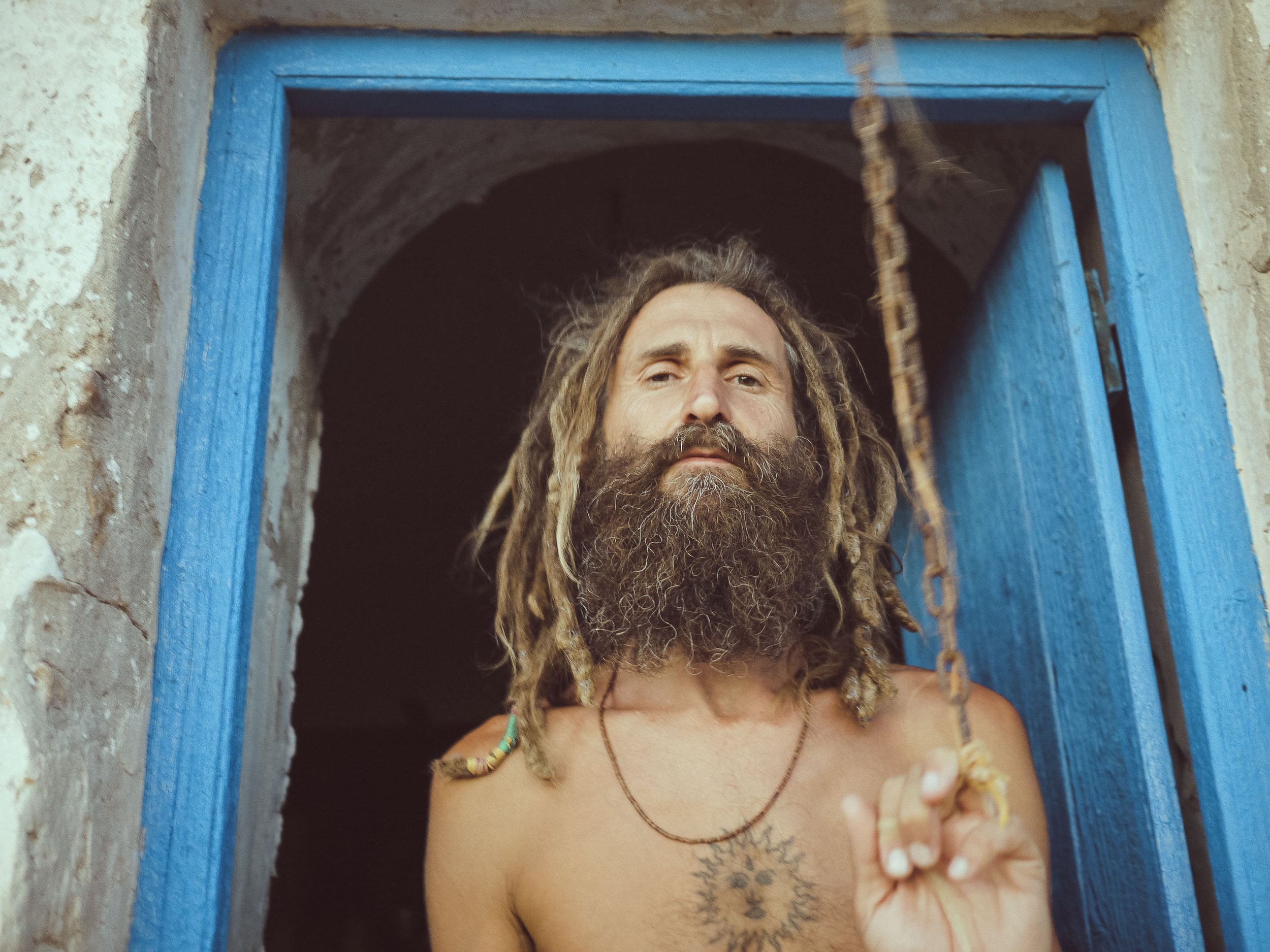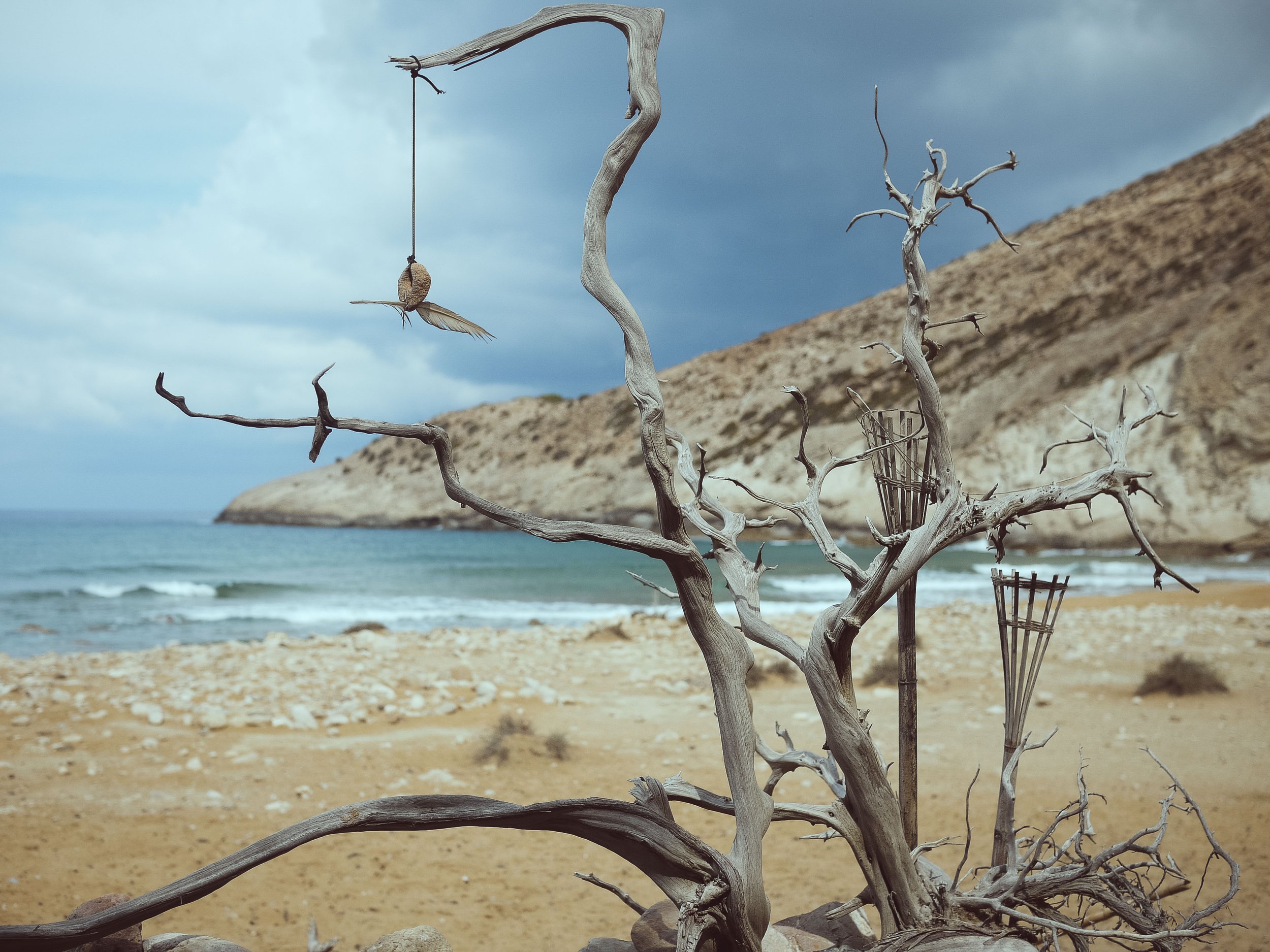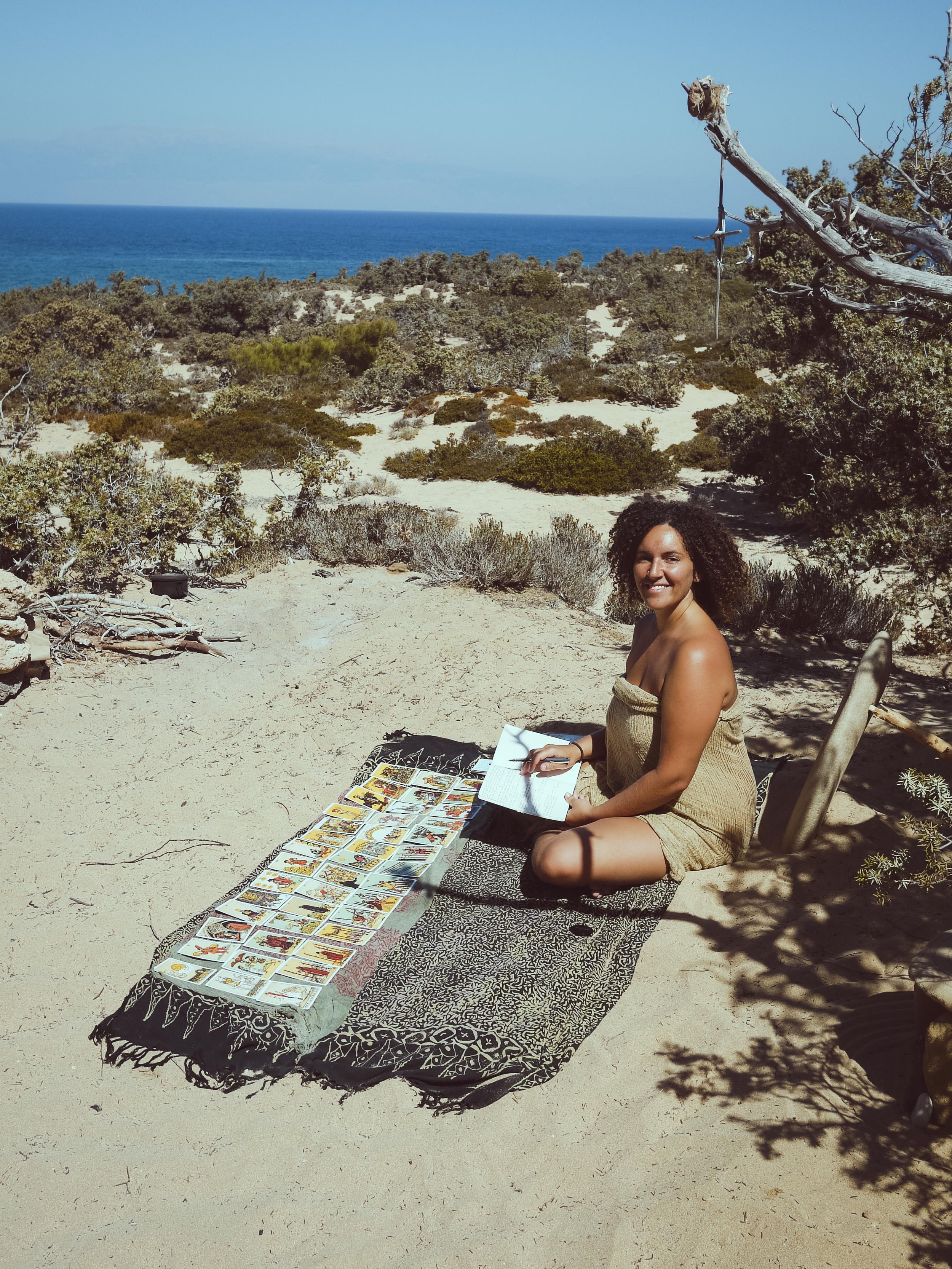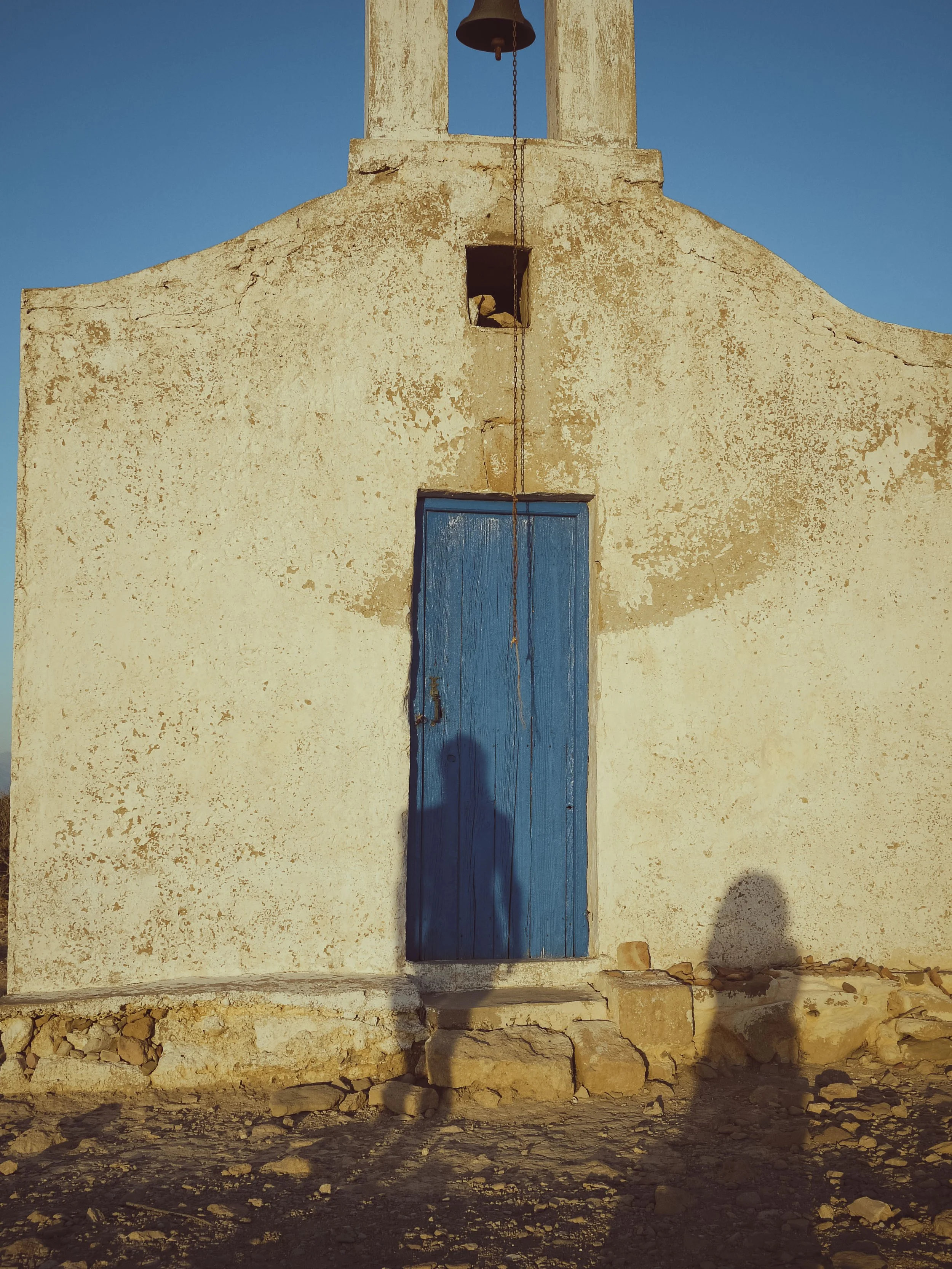Off-the-Grid in Gavdos
With no rules and no law-makers, Gavdos becomes a bustling outpost of junkies,
convicts, misfits, and gypsies during the height of the Greek summer.
It a place of wild camping and naked-living, an island of freedom and
self-reliance. Gavdos is a place that awakens the wild one within.
Gavdos is Europe's southernmost fleck of land floating in the Libyan Sea. The azure waters are as warm as a bath and lap up onto near desolate shores. Twisted and knotted trees cover the wind-beaten landscape, and the scent of juniper clings to the air like a perfumed collar. With no nearby supermarkets or tavernas, it is a place to hone your skills of self-reliance. The island is home to roughly fifty permanent year-round residents, with the rest of the transient population arriving during the Greek summer height. With no rules and no law-makers, this is when Gavdos becomes a bustling outpost of junkies, convicts, misfits, and gypsies. I was certainly curious and led by Spiros, a Greek man who had once lived for three years in a treehouse he built on one of the many stretches of idyllic beach.
Over the years, visitors have contributed to the building of driftwood kavajas (home), adorned with seashells, beach glass, stone, and discarded objects. At the end of the high season, one can take their pick of any of them, or simply sling a hammock between the sea juniper trees, sleeping under a thick canopy of stars. Amongst the remains of ancient Roman tombs and empty Orthodox churches, these ephemeral dwellings emphasize the resilience one requires to thrive in this otherworldly realm. This is a land where self-rule is preferred to subjugation, nudity to clothing. It is an island of survivalists and a refuge for the wild-hearted.
Spiros and I perched our tent on a ridge with a sea view, we hung our fruits and vegetables in a tree and hauled stones to erect a small temple where we placed fresh sprigs of wild rosemary each day. In narrow slivers of shade, we learned how to interpret tarot cards and read books on Jungian psychology and eco-therapy. At night, we sat at the hearth of a hand-built stone fireplace and sang Rainbow songs. Our old mobile phone battery was conserved to make a once-weekly call to Maria's supermarket in Crete: She would send our products on the Thursday ferry, and we'd send the money back with a crew member. We lived off of Greek salad, paximadia and fruits drizzled with tahini and rationed our olives like a month's wages. Once a week, I'd wash my hair in the sweet water well next to the driftwood communal kitchen, a social meeting place for an otherwise solitary existence.
Under the fluorescent Milky Way and between gnarled trunks of Juniper, I was an apprentice of this wild kingdom amid my own archetypal fable unfolding.
In his famous book, "The Odyssey," Homer narrates Odysseus' infamous journey to Ithaca, where he docks upon an island called Ogygia and is welcomed by the nymph Calypso with plentiful food, drink, and the share of her warm bed. With the promise of immortality, she pleads with Odysseus to stay with her, though after seven long years, he tires of her embraces. Atop an improvised raft of lashed tree trunks, the gentle breeze finally carries him away from the desperate clutches of Calypso and her twisted cavern. Not much appears to have changed on mythical Ogygia since Homer wrote the Odyssey in the 8th century B.C, except the island's name, which some claim to be Gavdos.
At the end of a naked month of living on this island, I was sun-baked and bright-eyed. I had become like a weathered shard of beach glass, smoothed by the elements and softened by its rhythms. I could tell time without a watch. I learned to live with what was available and realized that nature really does provide everything I truly need. Though a part of me felt the pull for the delights of civilization, I also regretted letting go of the closest thing to Utopia I had ever known. Like Odysseus, I came to understood how one could leave behind paradise propelled forward by the ever seductive call of a personal Ithica.
As our tiny ferry sailed towards Crete on a warm October wind, I recalled C.P. Cavafy's poem 'Ithaka' which I had read some years earlier,
"...Keep Ithaka always in your mind.
Arriving there is what you're destined for.
But don't hurry the journey at all.
Better if it lasts for years,
so you're old by the time you reach the island,
wealthy with all you've gained on the way,
not expecting Ithaka to make you rich…"












































